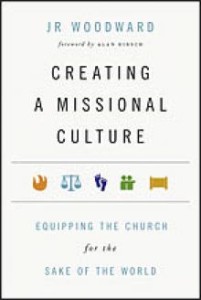In the age of speed, everything is fast including our listening. One psychologist has described us as having “an inner psychology of speed.” Fast internet, fast food, fast living, but more often than not, we are slow to hear and quick to speak. So while our speed is picking up, so is our relational foolishness. Hurried to get on to the next task, event, or tweet, we ride right over people. If we could reverse this malady, conflict would be less frequent and easier. More importantly, deeper relationships of understanding, love, and trust would emerge. Here are four ways to apply the biblical adage “Be quick to hear, slow to speak.”
1. Make time for relationships and space for questions. When was the last time you had unhurried, open-ended time with someone? A friend of mine recently spent a few open-ended hours downtown with another friend. No agenda other than food and good conversation. When he told me about the evening, it was like he stumbled onto a new drug. Superlatives spilled out of his mouth. When I asked why it was so amazing, he struggled to put his finger on it. We discovered it was mutual question asking and space to just be, unhurried, together. Tolkien often remarked that there’s nothing like good conversation, a pipe, and male company.
2. Look through the problem to hear and understand the person. We often speak too quickly. A lot of speech is reactionary, to a problem, shared interest, or criticism. We speak without thinking, whether we agree or disagree. The tongue can set fires and shower blessings. But when it moves too fast, the sparks of conflict fly. Most conflict arises because people focus on the problem not the person. Either party seeks to defend their rights, refusing to hear or understand one another. Only when we look through the problem and see the person, a real living soul, made in the image of God, with genuine feelings, will we be slow to speak and quick to listen.
3. Let stinging words and bad theology flow past you. I listen to people a lot. When I sit down with people I listen, ask questions, and try to understand, to see and feel what they see and feel. I’m not always good at it, but if Im doing a good job, it means I’ll let a lot of sin and bad theology flow right past me in order to understand what they are going through. When Job’s friend jumped on his wife for her bad counsel, he replied “They are like words to the wind.” When people are hurting, they often say things they don’t really believe. They just need space to get them out. Sure, they believe them for a moment but “Curse God and die” is not really in their catalog of beliefs. If we’ll listen, let words go to the wind, and understand what someone is trying to say, we’ll know what words to keep, to come back to, and which ones to let go.
4. Recognize you do not possess the power to change the person. Truth people are quick to speak because they think that if they “apply the right word” the person will change. But people are more complex than that. People need understanding and truth. Listen well, and you will understand, understand and you will know how to speak. It may turn out that the greatest power you possess is understanding, empathy. After all only Spirit can change us. Walter Chantry applied this to pastors:
“Sometimes ministers of the Word, even in the highest ecclesiastical positions, are nonetheless powerless to put an end to injustice. However, a sympathetic hearing, words of advice, and an assurance of God’s assistance are like cool water poured on the burning sands of persecution.”

